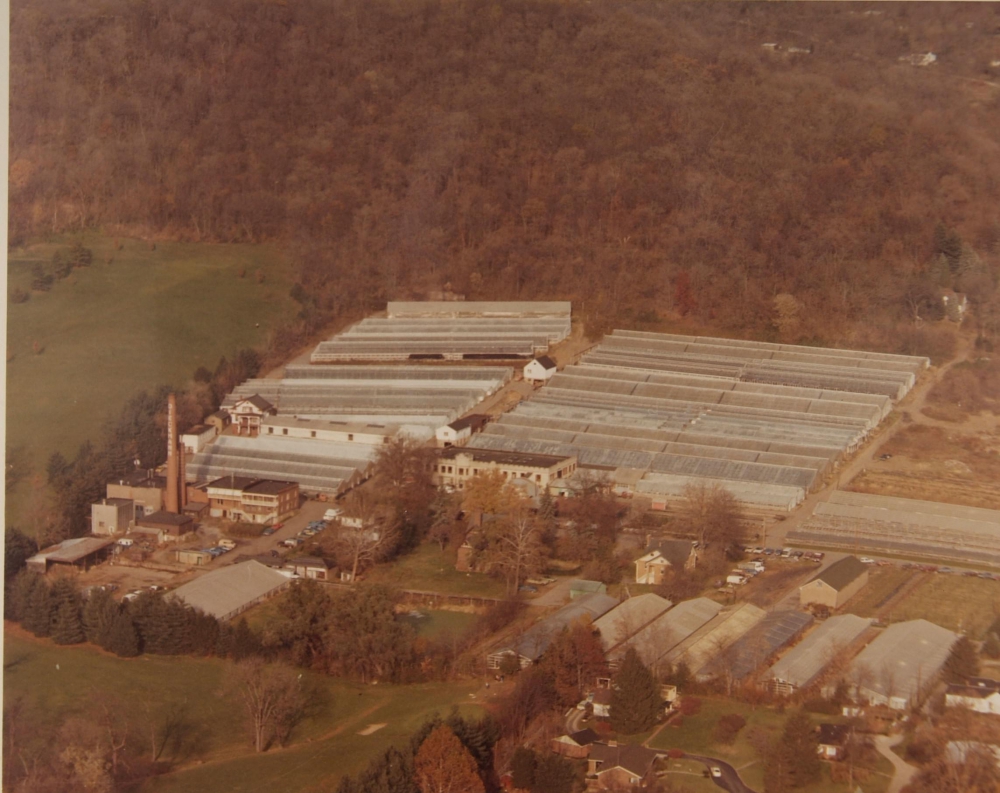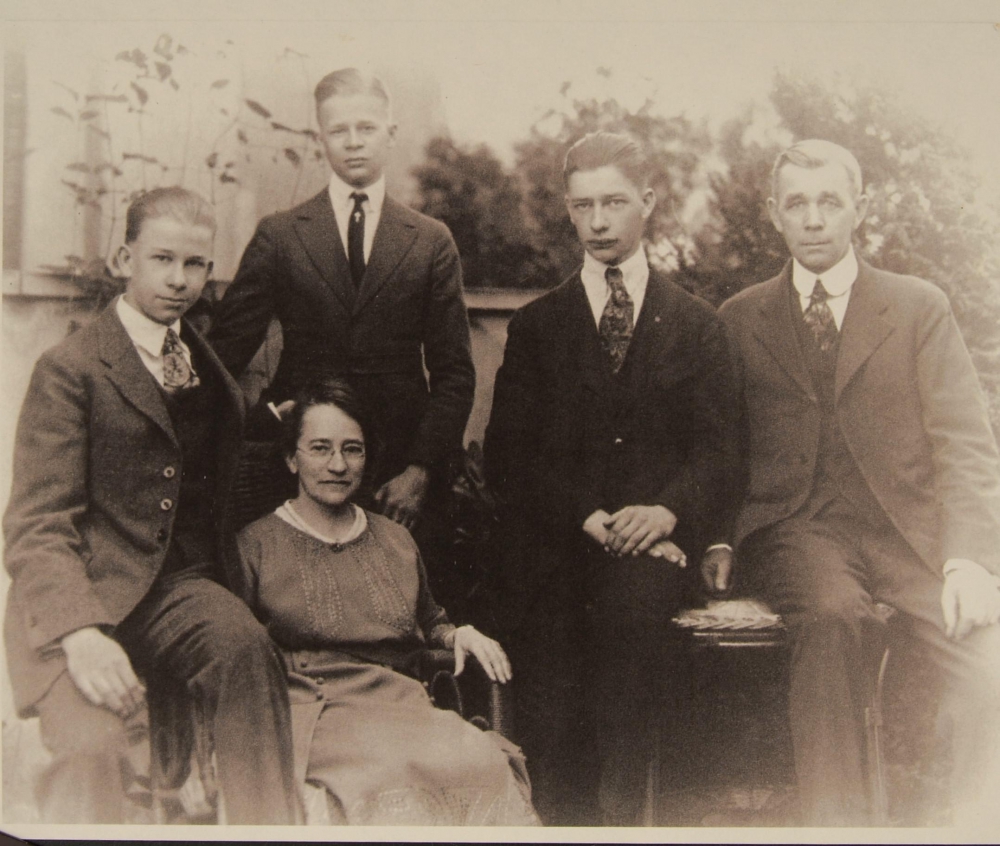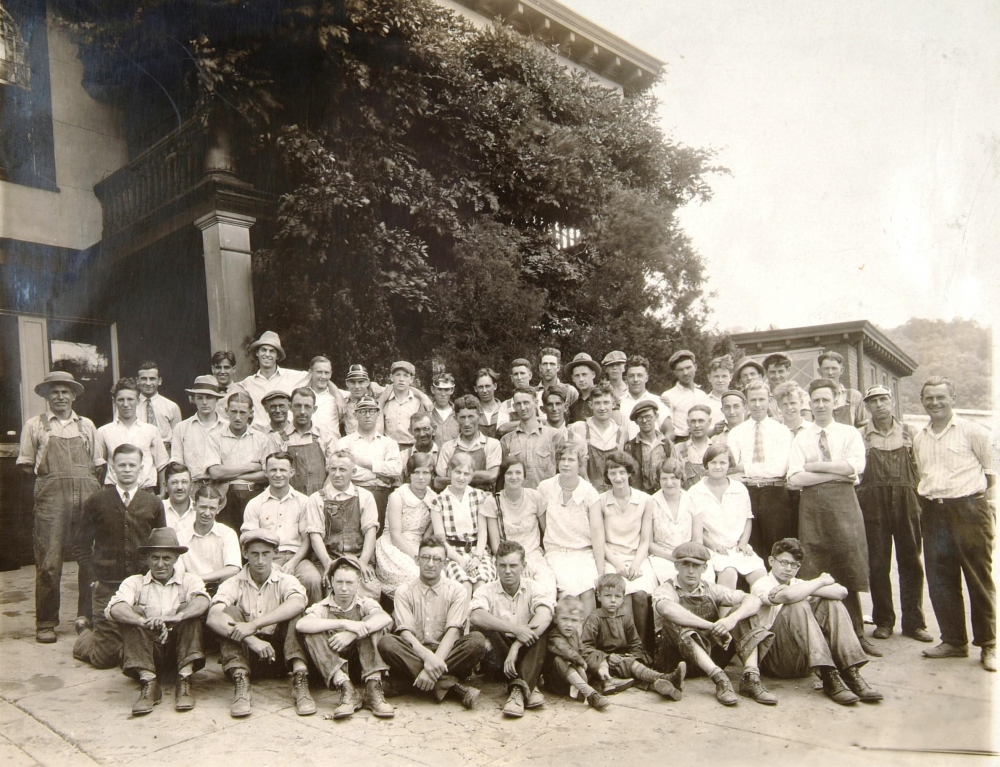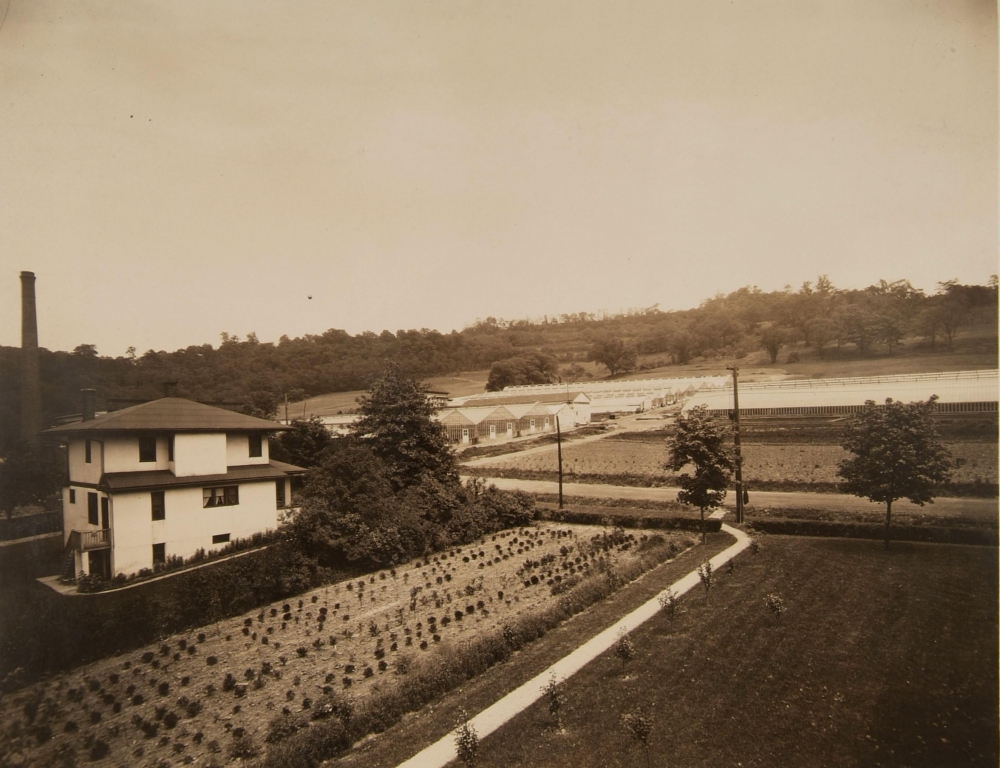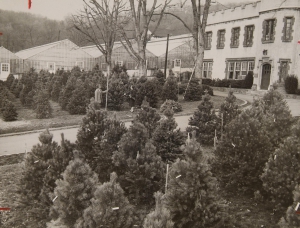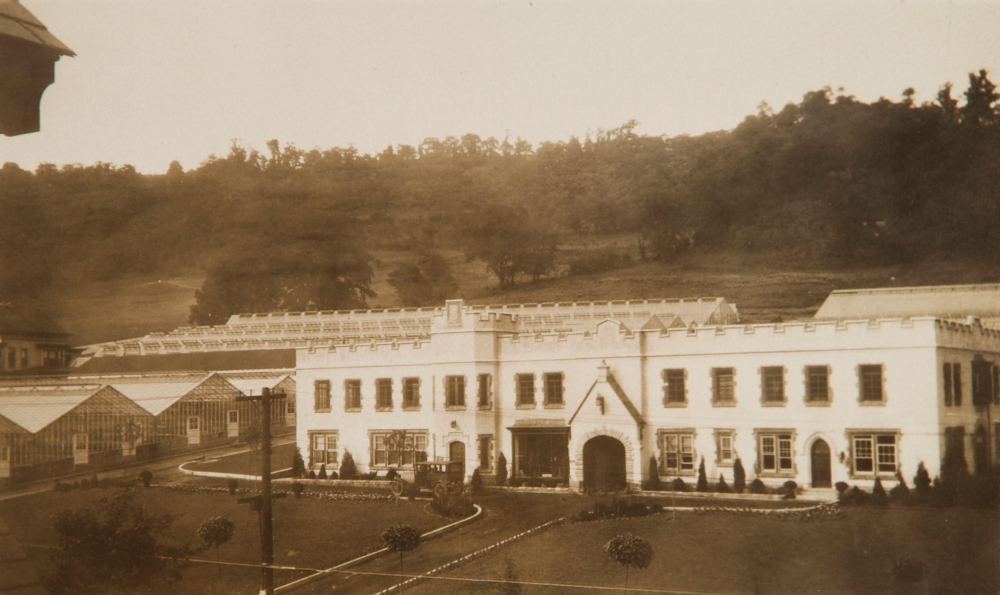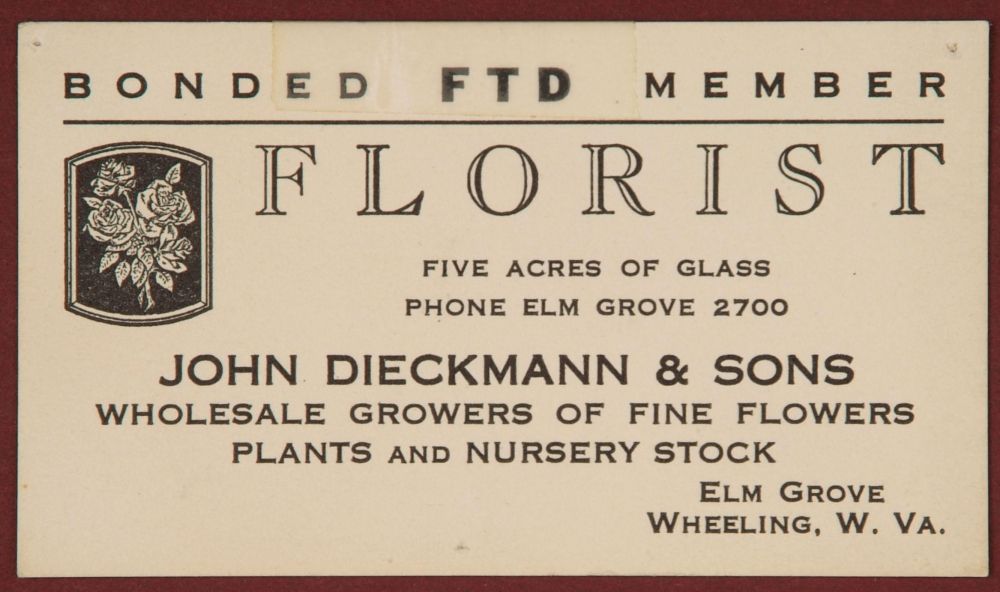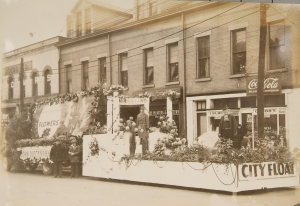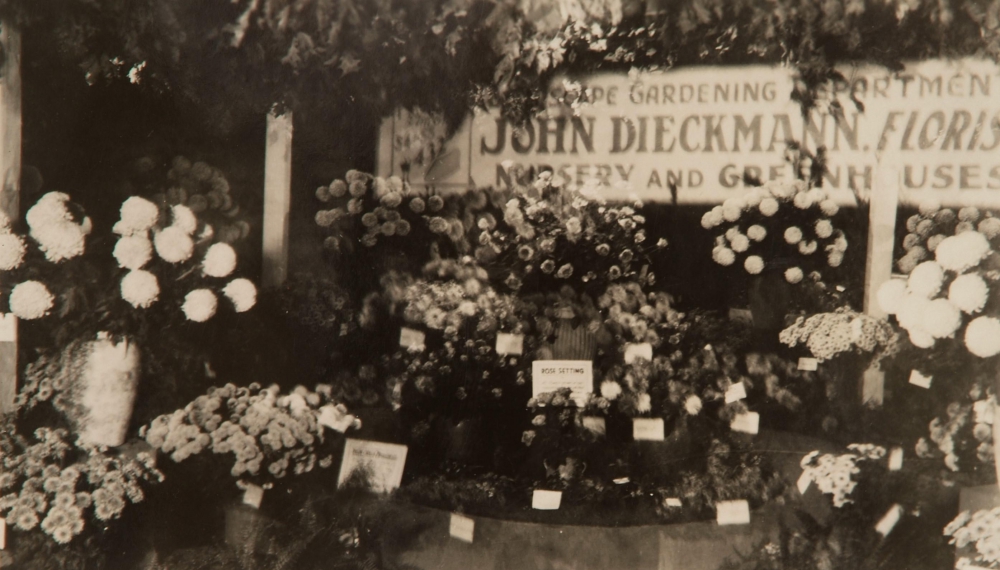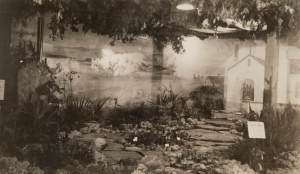
Ten Acres Under Glass: The Dieckmann Family of Park View
Dieckmann & Sons Florists
“It was a wonderful place to grow up, really. We (the grandchildren of John and Lucy Dieckmann) had a golden childhood.” –Joan Dieckmann Stein
[Based on an interview of Joan Dieckmann Stein, recorded September 2008, notes about the Dieckmann family, and input from several family members.]
A Family of Floriculturalists
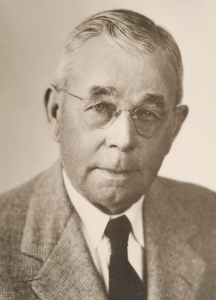 Johannes (John) Dieckmann was born in Winzeldorf, Holstein, Germany, in 1870 to a family of floriculturalists (flower farmers). He immigrated to the United States aboard the Patria, departing Hamburg and arriving at Ellis Island on May 24, 1895. John settled first in Wadsworth, Ohio, where he found employment for $1.50 per day. In Wadsworth he met Lucy Pfeiffer, a daughter of German immigrants, and they were married in 1897.
Johannes (John) Dieckmann was born in Winzeldorf, Holstein, Germany, in 1870 to a family of floriculturalists (flower farmers). He immigrated to the United States aboard the Patria, departing Hamburg and arriving at Ellis Island on May 24, 1895. John settled first in Wadsworth, Ohio, where he found employment for $1.50 per day. In Wadsworth he met Lucy Pfeiffer, a daughter of German immigrants, and they were married in 1897.
After moving to Cleveland and Akron, the Dieckmanns settled in Wheeling in 1900. John had accumulated $500 and went to work for the Wheeling Greenhouse Co., which was located on the Peninsula in Fulton.
Like many German immigrants, they became members of St. James Lutheran Church in Wheeling. They later joined St. Mark’s Lutheran, a mission church in Elm Grove. Joan was one of the first trustees of the church and a lifelong member. She believes her family was also involved with the Bach German Singing Society.
Lucy and John had three sons: Ernest, William, and Herbert. Joan Dieckmann Stein was born to William and Wilhelmina Folmar Dieckmann. She remembers riding the bus to Wheeling as a child and being told that her father and uncles were born in the little wood frame house standing in the midst of the hulking industrial buildings owned by the Blaw-Knox Corporation, once the site of the Wheeling Greenhouse Co.
Park View
Within a few years, John had bought the company and had accumulated enough money to buy some pasture land “Out the Pike,” in the Park View area of Elm Grove off National Road. It was a typical move for the period, as many German immigrants moved from Fulton to “the country,” which included Woodsdale, Edgewood, Pleasant Valley, and Elm Grove.
The land that John bought, located near what would become Wheeling Park, was part of a large horse farm owned by Patrick Kennedy. By 1909, John had established John Dieckmann & Sons, his rapidly growing florist business, on the property. In 1923, the History of West Virginia Old and New (the American Historical Society, Chicago and New York) reported that Mr. Dieckmann had “developed one of the largest and most modern flower-propagating plants in the state... and the development of the splendid business has been the result of his technical ability, close application and progressive policies.” By that year he employed 21 people and was supplying florists throughout West Virginia and Ohio.
He acquired more land over the years until the estate was 46 acres, with ten acres “under glass” (greenhouses) and the remainder filled with flower fields and trees.
Between 1905 and 1910, John Dieckmann built a traditional German-style house on the Park View land. The greenhouse offices were located on the first floor, with the residence above. Employees were called to work by the clanging of a large farm bell every morning at 7 am.
“It was a wonderful place to grow up, really,” Joan recalled fondly. “We had a golden childhood.”
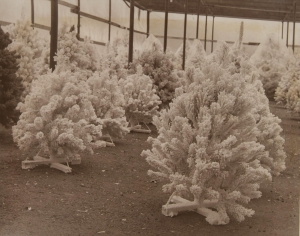 As the business grew, a large administration building (often called “the castle” by neighborhood children) was built, as well as a new residence – a half-timbered, European-style house completed in 1925.
As the business grew, a large administration building (often called “the castle” by neighborhood children) was built, as well as a new residence – a half-timbered, European-style house completed in 1925.
John brought other relatives from Germany: his sister Dorothea in 1921; his brother Ernst with wife Margarethe and their children Ernst, Hans, and Anna in 1922; and sometime later, John’s brother Otto.
The Dieckmanns soon had another 119,000 square feet under glass and more nursery farms in Wintersville, Ohio. They supplied florists in four states – “All over the east coast,” said Joan.
A Successful Business
In 1930, John Dieckmann became one of the founding members of Oglebay Institute. The first members’ dinner cost $1.25 per plate and annual membership dues were $25.
In 1956, the Rotarians honored John Dieckmann, declaring him a “shining example of the American free enterprise system. He came to America without any money. He did have, however, a knowledge and a love of flowers and a good German background of thrift and hard work. He asked for no government subsidies, hand-outs, or free-for-nothing favors. He made his own social security.”
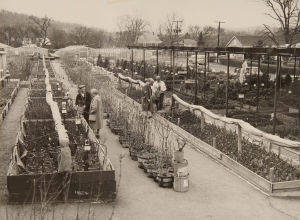 In 1963, the Wheeling Intelligencer, celebrating West Virginia’s centennial, congratulated John Dieckmann & Sons on the business’s 63rd year in the state:
In 1963, the Wheeling Intelligencer, celebrating West Virginia’s centennial, congratulated John Dieckmann & Sons on the business’s 63rd year in the state:
“Founded in 1900 by John Dieckmann, the greenhouse-nursery business is being continued and expanded by his sons, William P., Herbert and Ernest J. Dieckmann. The company is the largest greenhouse-nursery operation in West Virginia, and one of the largest in the USA, covering some 10 acres under glass, plus 100 acres of nursery, and employing between 150-185 persons, depending on the season. From the standpoint of diversification, Dieckmann’s is almost unique in the American horticultural field. In the greenhouses they grow practically every variety of plant and cut flower normally carried in a flower shop and the same is true of nursery items for landscaping. [3696, 3693, 3694] They also wholesale florist and garden supplies throughout West Virginia, eastern Ohio, Western Pennsylvania, parts of Kentucky and Maryland and, at holiday seasons, as far away as Florida. Locally, they have Wheeling’s largest garden center, landscaping and tree-service operation.”
When John retired, the Dieckmann businesses in Park View and Wintersville continued to operate under the leadership of his children, grandchildren, and great-grandchildren, until closing in 1992.
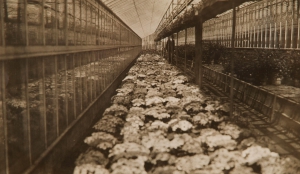 In 1996, a large part of the greenhouse property in Park View was sold to a developer and is now known as Arbordale. The family retained several acres of land, where some of the grandchildren and great-grandchildren of John and Lucy Dieckmann still live near each other.
In 1996, a large part of the greenhouse property in Park View was sold to a developer and is now known as Arbordale. The family retained several acres of land, where some of the grandchildren and great-grandchildren of John and Lucy Dieckmann still live near each other.
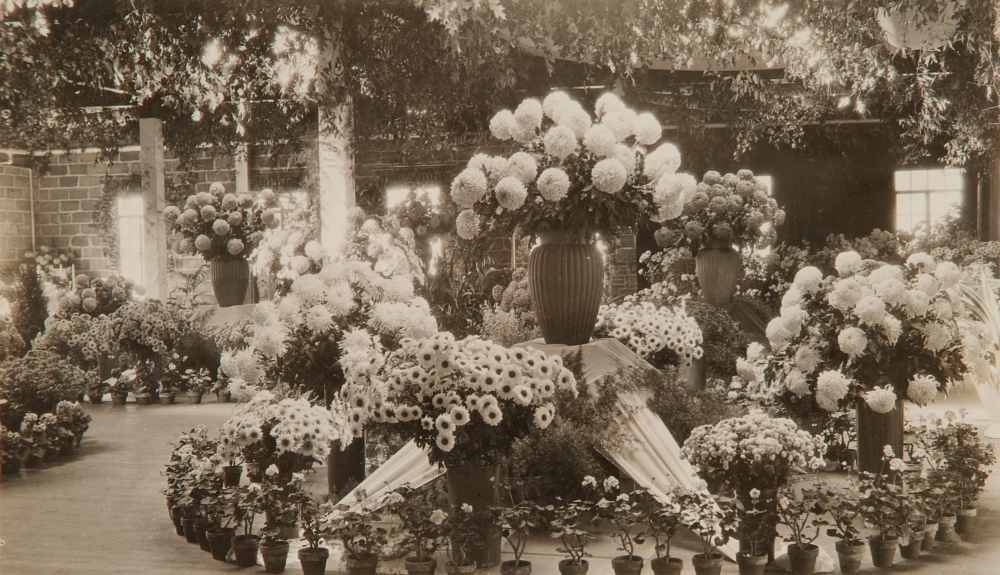
The Winzeldorf Dieckmanns, with whom Joan and her family still maintain contact, remain actively involved in floriculture.









